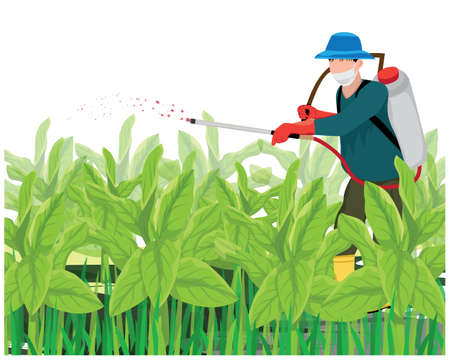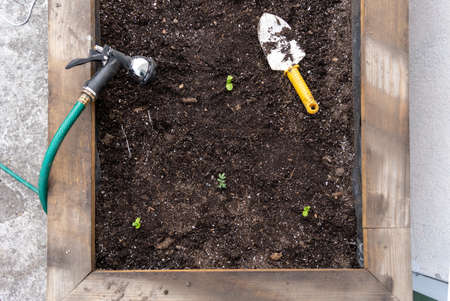Understanding Soil Health in UK Allotments
Good soil is the foundation of any thriving allotment in the UK. Healthy soil supports strong plant growth, helps retain moisture, and provides essential nutrients to your crops. In British allotments, you’ll typically encounter a range of soil types, such as clay, sandy, silty, peaty, chalky, and loamy soils. Each type comes with its own challenges and benefits. For example, clay soils are nutrient-rich but can become waterlogged, while sandy soils drain quickly but may need extra organic matter to hold nutrients. Recognising your soil type is the first step towards improving its health. Ultimately, well-maintained soil enables you to grow abundant vegetables, fruits, and flowers season after season. Prioritising soil health means less reliance on chemical fertilisers and more sustainable gardening for years to come.
Benefits of Organic Amendments
Organic amendments are a cornerstone of sustainable gardening on UK allotments. Incorporating materials like compost, well-rotted manure, and leaf mould into your soil can transform its structure and fertility. These natural additions do far more than simply feed your plants—they enrich the entire ecosystem beneath your feet. Let’s explore how organic matter supports a thriving, productive plot.
Improved Soil Structure
Adding organic amendments helps create a crumbly, friable texture in your soil. This structure allows roots to spread easily and increases the movement of air and water. Heavy clay soils common in many British allotments benefit from improved drainage, while sandy soils gain better moisture retention.
Nutrient Supply and Retention
Organic matter acts as a slow-release fertiliser, providing essential nutrients over time. Unlike synthetic feeds, it supports a steady, balanced supply that reduces nutrient leaching. Here is a simple overview:
| Amendment | Main Nutrients Provided | Best Use |
|---|---|---|
| Compost | Nitrogen, Phosphorus, Potassium (NPK) | General soil enrichment |
| Manure | Nitrogen-rich (especially from poultry or horse) | Heavy feeders like brassicas |
| Leaf Mould | Potassium, trace minerals | Mulching & improving soil texture |
Boosting Soil Life
A healthy allotment is teeming with life below the surface. Organic matter feeds beneficial microbes, worms, and insects that break down material into plant-available nutrients. This natural cycle creates rich, living soil that supports strong, resilient crops.
Pest and Disease Reduction
Soils with high organic content are often less prone to compaction and waterlogging—conditions that can lead to root diseases. Furthermore, diverse soil biology helps suppress harmful pests naturally.
A Greener Approach for Your Plot
By using organic amendments regularly in your UK allotment, you’re not just feeding this year’s crop—you’re building long-term fertility for seasons to come. This approach aligns with traditional British gardening wisdom and modern eco-friendly practices, ensuring your plot remains productive and beautiful year after year.

3. Choosing the Right Amendments for British Soils
Understanding your local soil type is the first step to choosing effective organic amendments for your UK allotment. The soils across Britain vary widely, from heavy clays in the Midlands and South East, to sandy loams in East Anglia, and peaty soils in Scotland and the North West. Each soil type has its own strengths and weaknesses, so tailoring your approach is essential.
Assessing Your Soil Type
Begin by identifying whether your allotment sits on clay, loam, sand, or peat. Clay soils hold nutrients well but can become waterlogged; sandy soils drain quickly but may struggle to retain moisture and nutrients; loamy soils are usually well-balanced, while peaty soils are high in organic matter but often acidic. A simple jar test or a squeeze test can help you determine your soil’s texture.
Adapting to Local Weather Patterns
The UK’s unpredictable weather also plays a part in amendment selection. In wetter regions like Wales and the North West, amendments that improve drainage—such as coarse compost or well-rotted bark—are beneficial for heavy soils. In drier areas of southern England, mulching with organic matter helps conserve moisture and protect plants during dry spells.
Popular Organic Amendments in the UK
- Compost: Homemade or council-supplied compost is ideal for most UK soils, adding nutrients and improving structure.
- Well-rotted manure: Favoured on traditional allotments, manure boosts fertility but should be applied in autumn to prevent scorching young plants.
- Leaf mould: Especially good for lightening clay soils and building structure in sandy beds.
- Green manures: Sown over winter, these fix nitrogen and add organic matter when dug in come spring.
Meeting Allotment Needs
Your choice of amendment also depends on what you grow. Heavy-feeding crops like brassicas benefit from rich compost and manure, while root crops prefer lighter soil improved with leaf mould or garden compost rather than fresh manure. Regularly testing your soil’s pH ensures amendments are supporting—not hindering—plant growth.
By matching amendments to your local conditions and allotment goals, you’ll build healthy, resilient soil that supports abundant harvests year after year.
4. Techniques for Applying Organic Amendments
Applying organic amendments like compost, well-rotted manure, and leaf mould is essential for building healthy, fertile soil in your UK allotment. Here are some simple, practical methods to help you get the most benefit from these natural additions.
Best Methods for Incorporating Amendments
- Surface Mulching: Spread a 5–8 cm (2–3 inch) layer of compost or well-rotted manure over bare soil in autumn or early spring. Let worms and rainfall draw nutrients down naturally.
- Dug-in Application: For heavy feeders (like brassicas), dig amendments directly into planting rows or holes just before sowing or planting.
- No-Dig Method: Lay compost on top without turning the soil, preserving structure and beneficial organisms—ideal for UK clay soils prone to compaction.
Timing and Quantity Tips for UK Climates
The timing and amount of amendment can make a big difference, especially with the UKs variable weather. Use the table below as a quick reference:
| Amendment Type | Recommended Timing | Suggested Quantity per m² |
|---|---|---|
| Compost | Autumn or Early Spring | 5–8 cm (2–3 inches) |
| Well-rotted Manure | Late Autumn (allow winter to mellow) | 5–7 kg (about 1 bucket) |
| Leaf Mould | Early Spring | 3–5 cm (1–2 inches) |
Additional Tips for UK Allotment Gardeners
- Avoid applying fresh manure in spring—it can scorch young plants and leach nutrients during wet spells.
- If your soil is heavy clay, focus on surface mulching and no-dig methods to improve drainage over time.
- Add amendments annually to maintain fertility, especially after harvesting main crops.
Summary
With a little planning and the right techniques, organic amendments will gradually transform your allotment’s soil, making it easier to work and more productive season after season.
5. Maintaining and Monitoring Soil Health
Looking after your allotment soil is an ongoing process, crucial for keeping your crops productive year after year. Regular care not only maintains fertility but also helps avoid common problems found in UK plots.
Crop Rotation: A Time-Tested Method
One of the simplest yet most effective ways to preserve soil health is by practising crop rotation. Changing the types of vegetables grown in each bed each season helps prevent nutrient depletion and reduces the risk of pests and diseases building up in the soil. For example, follow potatoes with beans or brassicas the next year. Traditional UK rotation plans often split beds into groups such as legumes, brassicas, root crops, and others.
Testing Your Soil
Regularly testing your soil is essential for understanding its condition. Affordable kits from local garden centres can check pH levels and basic nutrients. For more detailed analysis, consider sending samples to a specialist UK lab. Aim to test every couple of years or if you notice poor plant growth or unusual leaf colours. Adjust amendments based on these results—add lime if your soil is too acidic, or extra compost if organic matter is lacking.
Recognising Common UK Allotment Soil Problems
Compaction
If water puddles on the surface or roots struggle to grow, your soil may be compacted. Avoid walking on beds when wet and use a garden fork to gently aerate the ground each autumn.
Poor Drainage
Heavy clay soils are common in many British plots and can become waterlogged. Improve drainage by adding plenty of well-rotted organic matter and creating raised beds if necessary.
Nutrient Imbalances
Yellowing leaves or stunted growth could indicate nutrient deficiencies. Rotate crops as advised and top up with balanced organic fertilisers or homemade compost throughout the growing season.
A Continuous Journey
Caring for your allotment soil isn’t a one-off task—it’s a cycle that continues through every season. By rotating crops, regularly testing soil, and responding quickly to common problems, you’ll keep your UK plot thriving and productive for years to come.
6. Sustainable Practices for the Allotment Community
Building healthy soil in your UK allotment is not just about what you add to the earth, but also how you work together with your local community. Sustainable habits such as home composting, mulching, and sharing resources play a crucial role in supporting both soil fertility and the wider environment. Embracing these practices reflects key British values of sustainability and community spirit.
Home Composting: Closing the Loop
Home composting transforms kitchen scraps, garden clippings, and organic waste into nutrient-rich compost for your plot. By composting at home, you reduce landfill waste and create a free, natural amendment that boosts soil structure and encourages healthy plant growth. Many UK allotmenteers swap tips and even share surplus compost with neighbours, making it a truly communal effort.
Mulching for Moisture and Microbes
Applying organic mulch—such as leaf mould, wood chips, or straw—helps retain moisture, regulate temperature, and feed soil life. Mulching is an easy way to recycle local materials while reducing the need for chemical inputs. In typical British weather, it also protects your soil from heavy rain and erosion.
Sharing Resources: Tools and Knowledge
The UK allotment tradition is rooted in cooperation. Sharing tools, seeds, or even green manure crops can reduce costs and minimise resource use. Many communities hold seed swaps or tool libraries to encourage this eco-friendly approach. By working together, allotmenteers can collectively improve their plots while reducing their environmental footprint.
Adopting these sustainable practices not only builds healthy soil but also strengthens the sense of community found on UK allotments. When everyone pitches in—composting at home, mulching beds, and sharing resources—the result is a greener, more resilient growing space that benefits people and planet alike.


